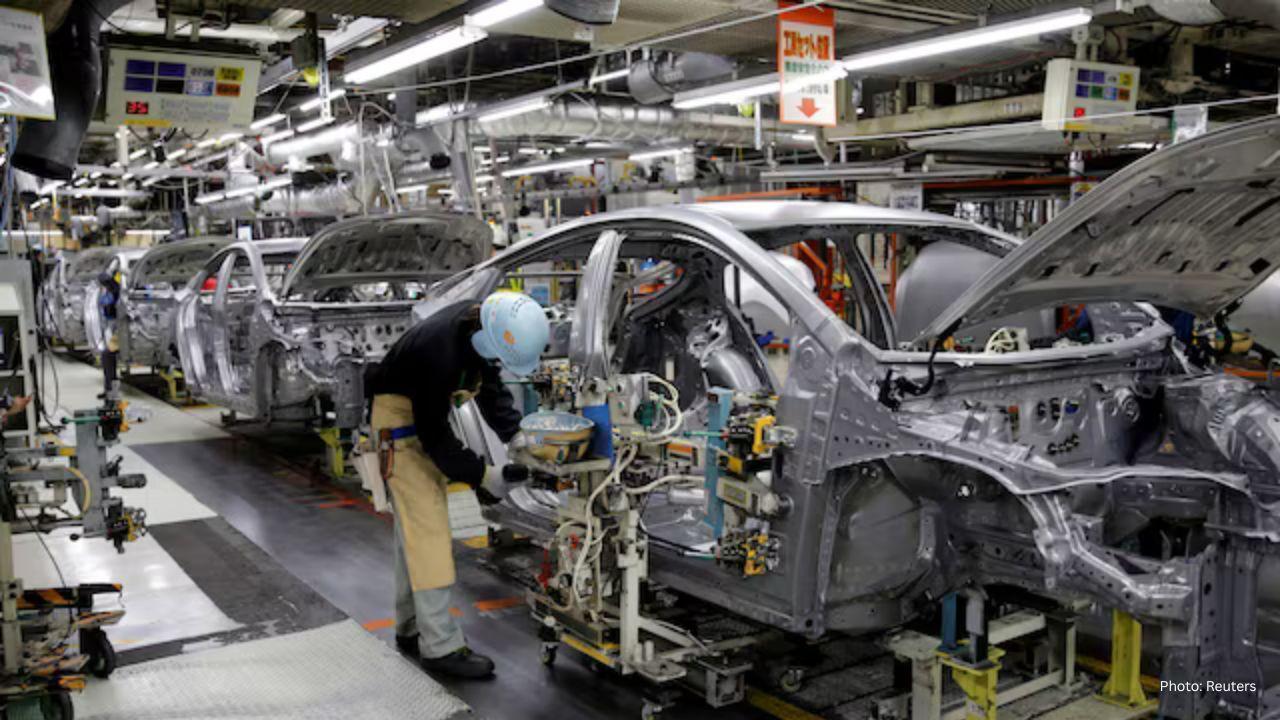
Post by : Saif
Japan’s most powerful automobile workers’ union has made it clear that it will not step back from its wage demands, even though the auto industry is facing big financial pressure from high U.S. tariffs. Akihiro Kaneko, president of the Confederation of Japan Automobile Workers’ Unions (JAW), said that workers still need higher pay because living costs remain high and real wages have not kept up with inflation.
Kaneko explained that the union believes wage growth must continue into next year. He said there is “no option” to ask for less than what was demanded last year. This strong position shows how important wage increases have become for both workers and Japan’s economy. JAW represents about 784,000 workers from major companies like Toyota, Honda, and many auto parts makers. Together, the auto industry supports more than 5 million jobs in Japan.
The sector, however, is under stress. U.S. tariffs have sharply reduced earnings for Japanese carmakers, and the industry expects profits to fall by about 30% this year. Still, Kaneko argued that lowering wage demands would harm the country in the long run. He said Japan needs to keep a “positive cycle” in place: higher wages boost spending, more spending helps businesses grow, and growth strengthens the whole economy. Without good wages, this cycle weakens.
This year, JAW’s member unions won an average monthly wage increase of nearly 5%. The union wants this progress to continue, not just for workers’ well-being but also to support national economic goals. Japan’s central bank, the Bank of Japan (BOJ), is also watching wage talks very closely. The BOJ wants to know if companies will keep raising pay even with lower profits. These decisions will help the central bank decide when to raise interest rates again.
BOJ Governor Kazuo Ueda said the bank needs “a bit more data” before making a move. He explained that the auto industry is especially important because it plays such a large role in the economy. If the auto sector struggles to raise wages, it could affect the entire country’s financial future.
Kaneko said the union is ready to work with automakers to find ways to support higher wages. This includes helping companies improve profits and making sure suppliers can charge fair prices. He stressed that keeping wages strong is essential for Japan’s long-term growth and stability.
As next year’s wage talks approach, the position of Japan’s automobile union will play a major role in shaping national labor negotiations. The outcome could influence everything from worker salaries to inflation, economic growth, and future central bank decisions.
#trending #latest #JapanAutoIndustry #WageHikes #JAWUnion #USATariffs #Toyota #Honda #JapanEconomy #ArmustNews #BOJ #WorkersRights










Advances in Aerospace Technology and Commercial Aviation Recovery
Insights into breakthrough aerospace technologies and commercial aviation’s recovery amid 2025 chall

Defense Modernization and Strategic Spending Trends
Explore key trends in global defense modernization and strategic military spending shaping 2025 secu

Tens of Thousands Protest in Serbia on Anniversary of Deadly Roof Collapse
Tens of thousands in Novi Sad mark a year since a deadly station roof collapse that killed 16, prote

Canada PM Carney Apologizes to Trump Over Controversial Reagan Anti-Tariff Ad
Canadian PM Mark Carney apologized to President Trump over an Ontario anti-tariff ad quoting Reagan,

The ad that stirred a hornets nest, and made Canadian PM Carney say sorry to Trump
Canadian PM Mark Carney apologizes to US President Trump after a tariff-related ad causes diplomatic

Bengaluru-Mumbai Superfast Train Approved After 30-Year Wait
Railways approves new superfast train connecting Bengaluru and Mumbai, ending a 30-year demand, easi